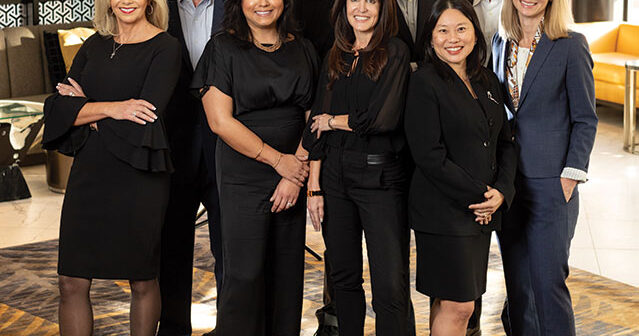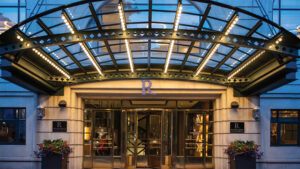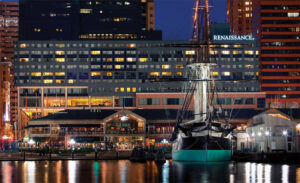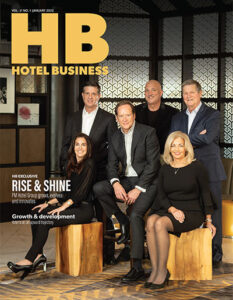Acquisitions and mergers. Whether to expand a company’s reach, gain market share, access talent or diversify a portfolio, growth is the goal and transformation and evolution the process. After 25 years in the hotel industry, if third-party management company PM Hotel Group had decided to just take the past year to celebrate its successes, no one would have questioned the decision. Focused on opportunities accelerated by the environment, the company ultimately experienced a transformational year.
As part of that transformation, PM Hotel Group has shared exclusively with Hotel Business that the company is merging with lifestyle management company Modus Hotels, creating a lifestyle portfolio leveraging the technology and business platforms of PM Hotel Group with Modus’ experiential hospitality expertise.
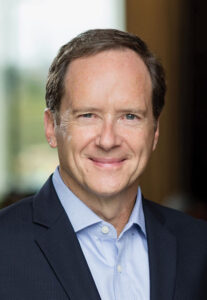
With us growing our lifestyle portfolio and seeing the brands launch soft-brand divisions… Those became opportunity areas for us for growth. —Joseph Bojanowski PM Hotel Group
“It will be Modus Hotels by PM Hotel Group,” said Joseph Bojanowski, president, PM Hotel Group. “We will put our independent and lifestyle hotels into that new division. It will provide another platform, not only for growth for PM, but for our associates who enjoy being in that more independent environment, and then, particularly, more options for our owners.”
Both companies are based in the Washington, DC area, so Bojanowski was familiar with Modus before his company pursued the merger. “We have known Modus for quite a while and have a tremendous amount of respect for its business model and the way the company operated its hotels,” he said. “Every hotel they operate is number one or two in TripAdvisor rankings in their respective markets.”
Adam Gollance, president/CEO, Modus Hotels, who becomes CEO of the new division, sees a great opportunity with the merger. “The combination of Modus Hotels’ expertise in lifestyle hotels and PM Hotel Group’s vast experience creates an awesome opportunity to drive outsized returns for our owners and to capitalize on this growing segment of the hospitality industry,” he said. “The alignment of our culture and values provides me confidence that we are shaping something special. I am excited to be part of this organization and can’t wait to help deliver truly unique experiences to both our guests and colleagues.”
Lifestyle has been a growing segment for PM, according to Bojanowski. “We have about a half-dozen unbranded independent lifestyle and luxury properties—including Hotel du Pont and Airlie, as well as oceanfront Wave Resort and Bungalow Hotels amongst others—and then another half-dozen or so that are branded—including multiple Renaisaance properties and Canopy by Hilton, as well as several Westin hotels,” he said.
The segment is also one that is growing for the major brands, as well. “With us growing our lifestyle portfolio and seeing the high focus of the brands to launch their own soft-brand divisions… Those became opportunity areas for us,” said Bojanowski. “There were also key focus segments for our existing and future ownership groups. We wanted to ensure that we were best positioned to support our ownership groups and to take advantage of the trends that were happening in the market around that type of experiential soft-branded, independent hotels.”
Travelers are changing as well, said Bojanowski. They want to know that they are staying in a specific area, and not a generic hotel—an experience that lifestyle hotels can provide. “It is almost a requirement that there be some kind of experience related with travel and then, specifically, with the stay in a hotel,” he said. “Guests want there to be an authentic sense of place, that when someone stays in a hotel, they want to walk away knowing something a little bit more about the city or the location in which they stayed.”
Lifestyle hotels have different mindset of operating, he said—something that partnering with Modus can help PM do. “While the business-class hotels like the Hiltons, Hamptons and Sheratons deliver strong returns for our owners, they require a different style of management,” said Bojanowski. “We think that to get the highest value and the highest returns from those hotels for our ownership groups, we need to create and operate a lifestyle division and operate in a way that is unique to that style of operation and that type of hotel.”
Going forward, he sees that some business hotels will have to adapt to be more like what the leisure segment offers. “It’s a little bit different than a business-class hotel now—not that some of those don’t have their stories to tell, but I think it’s an alignment with the desires of the customer who is traveling now for leisure,” he said. “Leisure will continue to grow and eventually business travel will return, but all [travelers]want some type of experience and authenticity in that stay.”
Strengthening the portfolio
In addition to its latest merger with Modus, the company revealed exclusively to Hotel Business in November that it had added Paramount Management Associates, and its 11 properties, into the fold.
“Geographically, it fits very well for us,” said Bojanowski. “One of our focus area is geographic expansion, moving into different regions across the country. Paramount’s portfolio in places like Iowa, Ohio and Maine, extends our footprint and leverages our continued experience and relationships.”
While this expansion into new regions was a plus, he said that the fact that Paramount’s culture was a good fit with PM’s was essential. “From a geographic perspective, from a culture perspective and from a systems perspective, we are aligned,” he said.
The transition has gone well so far. “We were easily able to integrate our people, creating a team with Paramount with minimal to no disruption to the performance of the hotels of those ownership groups,” he said. “It’s been a relatively seamless process and they’re adding a lot of value to the company and different perspectives.”
Ethan Kramer, cofounder/president, Paramount, joined PM as chief investment + development officer. He now leads the investment team, sourcing and analyzing acquisition opportunities, working with owners seeking additional opportunities and overseeing the expansion of third-party management contracts.
Opportunity despite challenge
These mergers were made possible by PM Hotel Group’s “thoughtful and decisive” reaction to the pandemic, according to Bojanowski.
“The pandemic hit the hospitality industry especially hard,” he said. “The effect on travel was profound. At PM Hotel Group, our leadership style structure allowed us to be nimble and pivot quickly. We were able to move very quickly from assessment of what the situation was and what it meant to us, [to the]mitigation of the impact on our company and on our hotels—but specifically on the management company—and then we moved very, very quickly to recovery.”
The company made the decision not to furlough or lay off any of its above-property support team, other than some employees in payroll, recruitment and administration. Bojanowski believed that areas like revenue management, sales and marketing, human resources and finance were very important to the recovery.

Woody Montgomery, EVP, people and culture, and Dave Pollin, founder/chairman, speak at the company’s GamePlan Leadership Conference.
“Finance was particularly important going into this downturn [given]the deep impact that was felt by the properties and required high-level expertise and a keen ability to work with owners on developing complex debt restructuring, pursuing PPP and other grants and incentives that were available,” Bojanowski said.
The architecture and project management teams were also busy as some of company’s ownership groups took advantage of the downturn to reposition their hotels.
These moves helped to put the PM into recovery mode by May or June of 2020, according to Bojanowski, who added, “We ended 2020 with a 28.3% market gain. The company’s success positioned us to explore new strategic opportunities.”
Even before the new mergers were announced, the company began to make moves to prepare to expand.
In November 2020, Sage Patel was promoted to the newly created role of corporate director of strategic initiatives. He is responsible for developing, managing and helping implement programs and projects that support PM Hotel Group’s vision, drive improved hotel performance and add owner value.
The company also introduced a new visual identity and website in August. “The refreshed brand identity and creative suite are forward-leaning and modern,” said Jennifer Diamond Haber, SVP, brand and communications, PM Hotel Group. “It evokes the spirit of innovation and drive that inspires our team while remaining timeless and honoring our past. Travel is about experiences—not just where you go, but who you meet. The updated PM Hotel Group brand now embodies our passion for people, as well as our love for hospitality.”

The refreshed brand identity and creative suite are forward-leaning and modern… It evokes the spirit of innovation and drive that inspires our team.” —Jennifer Diamond Haber PM Hotel Group
As one might imagine, the company has evolved since it was first founded by Dave Pollin (who is now the chairman of the company) and Greg Miller 25 years ago as PM Hospitality Strategies. Both were Cornell Hotel School graduates. “They were working together in Phoenix, for [national accounting firm]Laventhol and Horwath, and doing feasibility studies and valuations of hotels for ownership groups,” said Bojanowski. “That experience gave them the confidence to launch PM Hospitality Strategies.”
They established the company in the Washington, DC-area based on a family relationship and the dynamics of demand within the city to establish a hotel.
Bojanowski, who had worked with DoubleTree Hotels and Resorts around the country, joined the company early on. “Dave had the construction and design experience and passion, Greg was great with finance and deal structure evaluations and I brought a hotel operations background,” he said.
The company grew from those beginnings into what it is today. “[We have] obviously evolved from what was a very, very Mid-Atlantic-centric company that was essentially founded to support the hotel investment of a select group of owners and to drive maximum profit and returns on their investments in those hotels,” he said. “As we grew and continued to geographically expand, and particularly with the growth of our platform, both from a people side as well as a technology side, we got to a point where we were extremely scalable. When we achieved that milestone, we started to expand geographically—going to California and the Pacific Northwest and Texas and eventually getting a relatively large presence across the U.S.”
For the company’s 20th anniversary, the decision was made to change its name to PM Hotel Group. “The thought was that with [the original]name, we were approaching the hotel business in a more thoughtful, strategic way; that there was more to it than day-to-day operations and that the evaluation of markets, supply and demand and trends mattered,” said Bojanowski. “They were essential in selection of sites and brands and business plans for each and every hotel. We wanted to reflect that was the way that we approached the management of hotels or adoption of technology very early on.”
He continued, “For the 20th anniversary, we took a look again at what we did and how we did it. There was perhaps a little bit of confusion in the industry that we were just a consulting group, because it was ‘Hospitality Strategies.’ It was done to bring a little bit more clarity to the name…and be more overt in that we were a hotel management company.”
An important thing about PM that has not changed since its founding 25 years ago—something Bojanowski said is key to its durability—is the adherence to its core values. “The way we do business, the methods, platforms and the technology that we use, those evolve and improve every year,” he said. “We grow, get better, adjust and adapt to market conditions and specifically, the conditions within the hotel industry, but at the center of all that are our core values of respect and teamwork, an entrepreneurial spirit and people who are driven. Those have allowed us to attract and retain really high-talent, high-contributing individuals.”
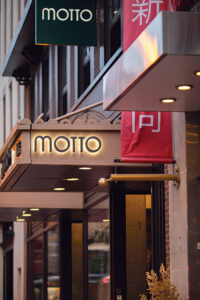
Motto by Hilton Washington DC City Center is now a part of the new Modus Hotels by PM Hotel Group lifestyle division launched after the merger of the two companies.
He pointed to the fact that both the first and third associates to join PM are still with the company “The average tenure for the support center [how the company refers to its corporate office]is more than 10 years,” he said. “We’re always infusing bright and talented individuals. I think those core values are what’s allowed us to attract and retain some of the best and brightest in our industry. Our people, the way they contribute and the level they contribute, have been at the core of our success.”
Those values continue beyond their associates. “Now, that not only goes for our associates, but to our brand partners and to our ownership groups, as well—and also into the communities in which we do business,” said Bojanowski.
He stressed that it is important to be involved in the betterment of those communities and the environment. In fact, in 2019, PM joined EPA’s Green Power Partnership pledging to use 100% green energy across its entire hotel portfolio. It was the first hospitality company to make the commitment and is the only hotel management company exclusively using green energy.
In honor of its 25th anniversary, the company expanded its PM Grows Initiative, which was launched in 2020 to further reduce its carbon footprint. PM grew its 1,000-tree planting program with One Tree Planted and will add regional planting service programs for associates to gather, celebrate and work together to make a positive change in their respective communities.
“At its core, it’s just the right thing to do…” said Bojanowski. “It’s the responsible way to approach business, whether it’s eliminating single-use plastics or overproduction of food or how we use energy… Respect for the planet and our community is a core value for us… We’re super proud of the efforts that we’ve had underway for years.”
As a privately held company, Bojanowski said that its goals are more long-term than ones that are publicly traded or owned by private equity groups. “We don’t have the pressures of quarter-over-quarter growth or earnings,” he said. “We’re looking for durability of income streams. We’re looking for relationships with owners that span a long horizon. We’re looking for an environment that attracts and retains the best and brightest in our industry. And we want to continue to grow strategically.”
He did not rule out future deals with other management companies. “I would expect that we will continue to explore opportunities where they make sense—again primarily for our ownership groups to be able to deliver the efficiencies, cost savings and revenue-generating benefits that come with scale—but always at a level that delivers personalized service,” said Bojanowski.
While he said the company doesn’t have aspirations to be the largest management company in the world, he added, “We do have aspirations to continue to grow, but do it strategically and aligned around our values and our core business model, which is centered on our associates and owners—our people.”

